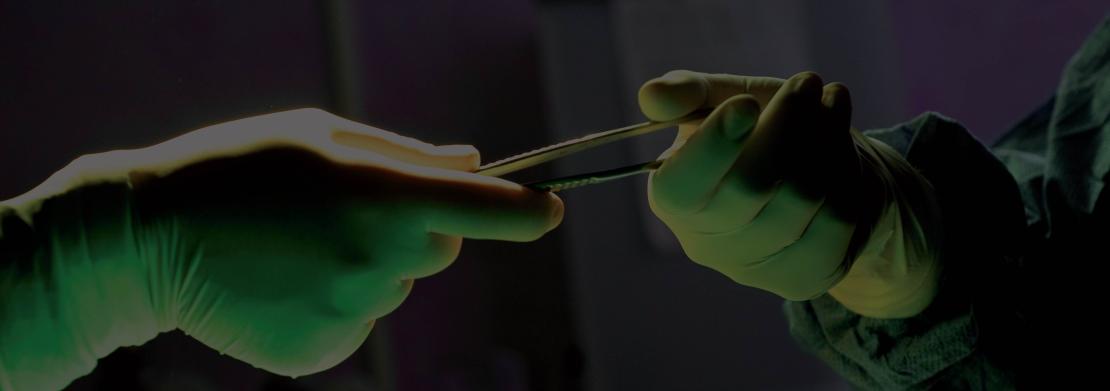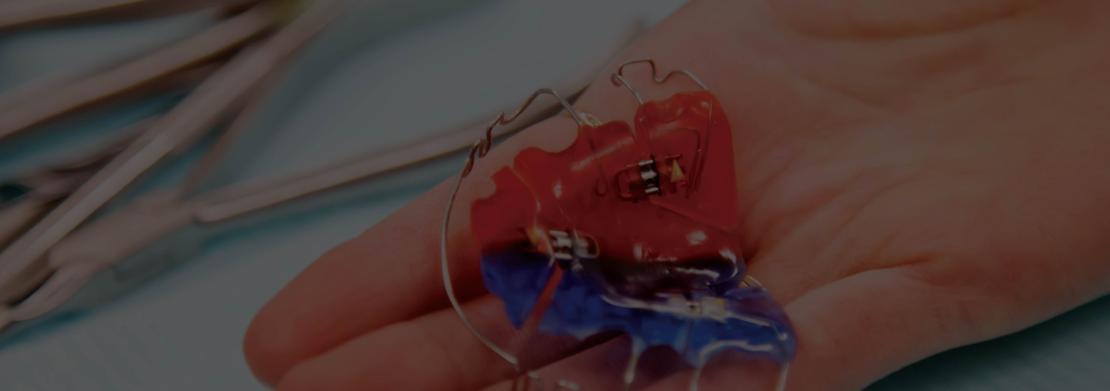"Organ Donation: The Most Human Way to Multiply Life"
Prof. Dr. Gürkan Ersoy, a faculty member of the Faculty of Medicine at Cyprus International University (CIU), discussed Organ Transplant Week, held from November 3-9. Ersoy emphasized that a single organ donor could save up to 8 lives, stating, "Organ transplantation saves lives."
Ersoy described organ transplantation and organ donation as the most beautiful example of societal solidarity. He also drew attention to the insufficient number of donors, stating, "Even a single donation can change the lives of many patients and their families." He emphasized the importance of raising awareness, stating that “Education, media, and social media campaigns, role models leading by example, and information points are crucial for increasing awareness.” Ersoy also pointed out that in the future, organ transplantation will not be limited to classical surgery but will also involve biotechnology, artificial intelligence, and genetic engineering. “That’s why young people need to follow not only medicine but also technology closely. The future of medicine lies in interdisciplinary thinking," he said.

1. What is organ transplantation and why is it so important?
Organ transplantation is the surgical procedure in which a failing organ is replaced by a healthy one from another person. This allows people suffering from life-threatening diseases to regain health. A single donor can save up to 8 lives!
Saves Lives: Some diseases cannot be treated with medication or dialysis. For patients with heart, liver, or kidney failure, organ transplantation is the only option. Every year, thousands of people die simply because a suitable organ is not found.
Improves Quality of Life: Organ transplantation not only saves lives, but also gives individuals back their freedom. For example, a kidney patient who has been dependent on dialysis can travel, work, and spend time with their family after receiving a transplant. Essentially, they return to life. A kidney failure patient must undergo 3 days of dialysis, each session lasting 4-5 hours. After a kidney transplant, they are freed from this burden.
The Most Beautiful Example of Societal Solidarity: Organ donation means “giving the gift of life after death.” The death of one person can turn into a new life for others. This is the most meaningful form of solidarity, where human values and medical science meet. It is a deeply emotional and incredibly important decision.
Insufficient Number of Donors: Many people are waiting for organ transplants. However, the number of organ donations following brain death or after death remains low. Yet, even a single person’s donation can change the lives of many patients and their families. Every year, hundreds of patients lose their lives due to the lack of suitable organs. By donating our organs, we can become part of the “chain of kindness” that continues to give life even after we are gone. Remember, one day we or our loved ones might need an organ. By donating today, we can be the hope for tomorrow—just as we donate blood while healthy.
2. There are still reservations in society about organ donation. What do you think are the most common misconceptions and what can be done to raise awareness?
Unfortunately, there are widespread misconceptions in our society about organ donation. These misconceptions often stem from a lack of information and emotional fears. Awareness is increased not only by knowledge, but also through stories and trust. Changing even one person’s mind can save a life. The most common and dangerous misconception is: "If I donate my organs, doctors won’t try hard enough to save my life." However, the primary duty of doctors is to save and treat every patient. Organ donation becomes a consideration only once brain death has been confirmed. The organ transplantation process is carried out by a separate specialized team, independent from the intensive care team.
To increase awareness, education, media and social media campaigns, role models leading by example, and information points are important. Schools should offer educational courses and/or seminars on “Organ Donation: Life and Donation” at all levels, and medical faculties and healthcare professionals should make more efforts to raise awareness in society. Sharing real-life stories on television, digital platforms, and social media creates a powerful impact. Campaigns, such as those featuring celebrities volunteering under the slogan "It’s in Our Hands to Save Lives," will have a strong resonance in society. Healthcare professionals, teachers, community leaders, and local authorities should publicly state that they have donated their organs while healthy, setting an example. Hospitals, organ transplant centers, and family health centers can display brochures and posters highlighting the importance of the issue. Short brochures, videos, and signage can be created for patients and their families. Organ Donation Week, held annually from November 3-9, should be marked with activities across all segments of society. Exhibitions, walks, and talks with the theme "One Organ, a Thousand Hopes" can be organized in universities, municipalities, and NGOs.

3. What are the key medical and ethical considerations during the organ transplant process? Why is it so important to correctly understand brain death?
Organ transplantation is not only a surgery; it is a very sensitive process both medically and ethically. The first and most important step in this process is for brain death to be correctly and definitively diagnosed by the experts. Only after brain death has occurred can organs from a donor be used for transplantation, both legally and ethically. The key principle here is: First, all medical efforts are made to save the patient; only when hope is lost does organ donation come into consideration. Brain death is diagnosed by two independent doctors, specialists in neurology, anesthesiology-resuscitation, neurosurgery, or intensive care, based on scientific guidelines. The “diagnosing team” is completely separate from the “transplantation team.” Brain death is medically and legally recognized as true death. While the patient’s heart may continue to beat for a time with mechanical support, this does not mean the person is alive. Brain death is, in fact, the end of life, although the heart may still beat for a while.
There are three fundamental ethical principles in the organ transplantation process:
1. Transparency and oversight: The entire process is documented and monitored.
2. Voluntariness and consent: No organ can be taken without the family’s consent.
3. Justice: Organ distribution is done through a central system, according to medical priorities, with no discrimination.
Respect for the donor and their family is a fundamental part of the ethical process. Let us not forget that this is both a medical and a human responsibility. Organ donation is the most human way to multiply life, even after death. The death of one person can be the beginning of life for others.
4. What scientific or technological advancements do you expect to see in the field of organ transplantation in the coming years?
While medicine has already made significant progress in the field of organ transplantation, the real revolution is expected in the near future. Three main areas are expected to see great advancements: biotechnology, regenerative medicine, and artificial intelligence systems.
Biotechnology is opening new doors in the fight against organ failure. One of the most exciting developments is bioprinting (3D organ printing). Scientists are now able to produce "mini organs" from cells using a printer. In the near future, it may be possible to transplant organs made from a patient’s own cells. This will greatly reduce the risks of tissue incompatibility and organ rejection.
Regenerative medicine aims to use the body’s natural self-repair mechanisms. With stem cell therapies, it is now possible for damaged tissues to regenerate. In the future, for some organ failures, partial tissue repair may be sufficient instead of a full transplant. For example, in patients with heart failure, instead of replacing the entire heart, stem cells may be used to repair the damaged areas.
Artificial intelligence has already begun to play a role at every stage of the organ transplantation process. AI can match organs with recipients in seconds and predict which patients are most likely to succeed after a transplant. In surgical planning, AI is revolutionizing the field with 3D modeling and digital twins of patients, allowing surgeons to “rehearse” the surgery in a virtual environment before the actual procedure.
As medicine pushes its boundaries, a strong balance between human values and scientific progress must also be maintained. Today, organ donors not only save lives but also inspire scientific advancement. In the future, we may no longer talk about finding organs but about producing them. But let’s not forget: No matter how advanced technology becomes, nothing can replace the kindness of a donor’s heart. “Science can create organs, but only humans can donate.”
5. What suggestions do you have for increasing the interest of medical students and young doctors in the field of organ transplantation? What kind of roadmap would you recommend for young people who want to specialize in this area?
Organ transplantation is not just a technical specialty; it is one of the deepest fields that touches human life. To increase young people's interest in this area, we must first help them build an emotional connection to it. A student who witnesses a transplant patient’s return to life will never look at medicine the same way again. The way to create this awareness is to involve them in real-life experiences early on.
Medical faculties should organize visits to organ transplantation centers, internships where the process of brain death can be observed, and seminars featuring live testimonials. Additionally, the multidisciplinary nature of organ transplantation should be emphasized because it is not just the work of surgeons—anesthesiologists, emergency physicians, nephrologists, and ethical committees all play essential roles in the process. Young people should experience this team spirit early on.
For young doctors who wish to specialize in organ transplantation, I recommend developing patience, curiosity, and a willingness to work as part of a team. The field of organ transplantation requires strong knowledge, discipline, and empathy. A young doctor should first become a good person and then a good clinician. A strong foundation in internal medicine, surgery, anesthesiology, and intensive care is essential. Afterward, gaining hands-on experience by working as an observer or assistant in organ transplantation centers is extremely beneficial. Many transplant associations, conferences, and training programs are available both nationally and internationally. These platforms offer opportunities to stay updated on scientific developments and find mentors. Mentorship is very important; the guidance of an expert who has dedicated their life to this field can help young doctors navigate their careers. Furthermore, in the future, organ transplantation will be intertwined with biotechnology, artificial intelligence, and genetic engineering. Therefore, young people should not only follow medicine but also technology closely. The future of medicine lies in the ability to think interdisciplinarily.